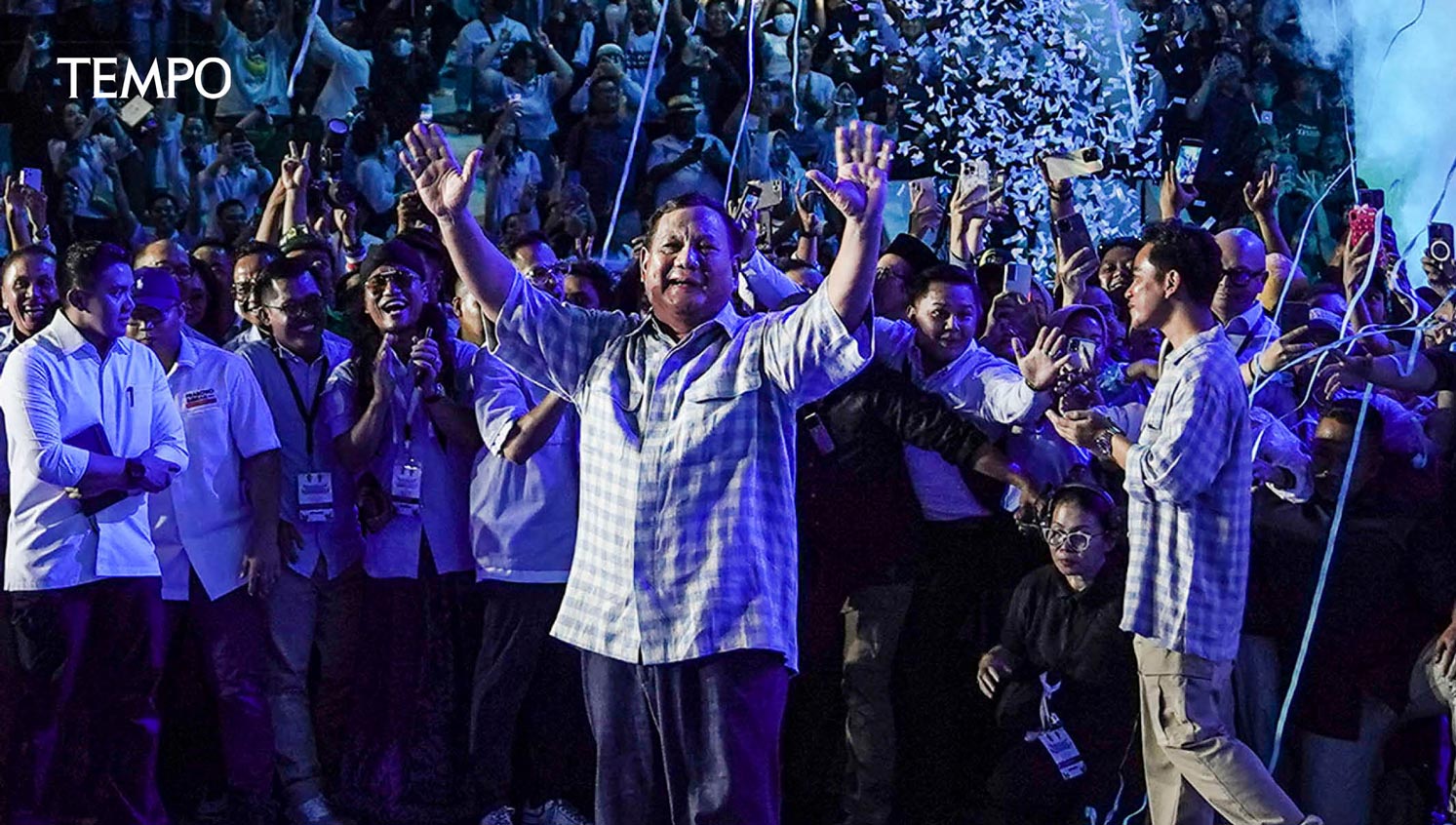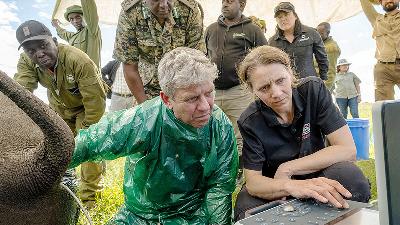The Power that Determined Prabowo's Victory
Monday, February 19, 2024
The key to the victory of Prabowo and Gibran in the presidential election is political support from those in power. This is a reoccurrence of the New Order elections.
arsip tempo : 174693876789.

ANY despot wanting to hijack democracy could learn from President Joko Widodo. He designed the structural and systematic dirty tricks in the presidential election on February 14. And it was in his hands that the Constitution was used as a way to legitimize these misdeeds. All of these moves were designed long before election day.
As of midday Saturday, February 17, Prabowo Subianto, paired with Jokowi’s oldest son, Gibran Rakabuming Raka, was in the lead according to the vote count by the General Election Commission. The pair had garnered 57.48 percent of votes, followed by Anies Baswedan-Muhaimin Iskandar on 24.61 percent, and Ganjar Pranowo-Mahfud Md. on 17.91 percent. Although the count has not yet finished, it is almost certain that Prabowo and Gibran will win.
Their victory is a direct result of power politics used to influence voters. Jokowi took advantage of his authority to deploy law enforcement personnel and government officials to help bring about victory for Prabowo-Gibran. In Central Java, a mayor asked subdistrict and village heads to gather support for Prabowo and Gibran. This was after the Corruption Eradication Commission questioned their subordinates about alleged corruption.
Security officers also put pressure on regional leaders to order village heads to bring out their people in support of Prabowo and Gibran. People who voted for this number two candidate pairing were given envelopes containing money. Village heads who protested were threatened with prosecution for embezzling village funds.
The preparations for making use of government officials began when the government appointed 20 acting governors, as well as 178 acting regents and mayors, in stages between the end of 2022 and November 2023. The selection of these regional heads did not take into account suggestions from regional legislative councils. Through these acting regional heads, the Jokowi regime instructed administrative heads to help ensure a victory for Prabowo and Gibran.
This intervention by regional heads and intimidation by law enforcement officers led to a collapse of the Ganjar Pranowo-Mahfud Md. vote in areas that had previously supported the Indonesian Democratic Party of Struggle (PDI-P). As well as this, Jokowi had been actively giving out social assistance funds to areas where the PDI-P had a strong support base. At the same time, the PDI-P was too slow in warming up the party machine, which initially was busying itself with trying to win seats in the legislature.
What happened in Indonesia is in line with a study carried out by Dov H. Levin (2016), a political scientist from the United States, who said that intimidation and influence by governments has a significant impact on election results. Such systematic intimidation improves the election chances of candidates supported by the government.
This is why an electoral system—in the form of regulations that determine who can stand and how the election is organized—plays a role in balancing power politics. In Indonesia, the electoral system was manipulated in the interests of the government. In October 2023, the Constitutional Court tinkered with the law so that Gibran, who was under the age limit, could run for the vice-presidency.
With the system so carefully designed to allow only the victory of the candidate supported by the government, the 2024 election resembled those during the New Order regime, which always resulted in victory for Suharto. While Suharto used the military, the bureaucracy and Golkar, now Jokowi is using the security forces, the bureaucracy and political parties.
Moreover, the General Election Supervisory Agency (Bawaslu) has not been at all serious about investigating all these dirty tricks. Unfortunately, even if the Bawaslu manage to carry its duty, it is almost certain that the Constitutional Court will also reject any challenges to the election result by claiming that the difference in votes is insignificant.
With all of these power politics moves to influence the outcome of the election, the voting system needs to be reformed. Civil society and ordinary people should consolidate to put pressure on politicians who have the authority to draw up policy in order to bring about a complete redesign of the elections. This is because the quality of a democracy is not simply measured by the numbers of votes, but also by the processes itself.











